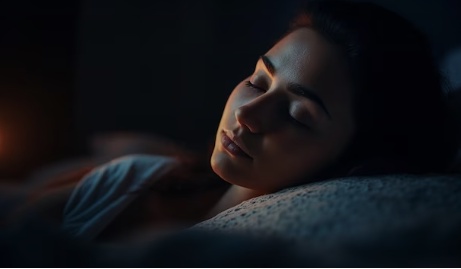Do you struggle with getting a good night's sleep? You're not alone. Sleep disorders affect millions of people around the world, causing a range of health issues and impacting daily life. However, advancements in technology have revolutionized the field of sleep disorders treatment, offering innovative solutions for better sleep. In this article, we will explore the latest technologies that are being integrated into sleep disorders treatment, providing new hope for those seeking a restful night's sleep.
The Smart Pillow: Your Personal Sleep Assistant
Imagine a pillow that can actively monitor your sleep patterns and adjust its firmness and temperature to optimize your sleep quality. This is now a reality with the advent of smart pillows. Equipped with sensors and built-in AI technology, smart pillows can track your sleep cycles, detect snoring, and even gently wake you up at the optimal time within your sleep cycle. With personalized sleep data and recommendations, a smart pillow becomes your personal sleep assistant, helping you achieve the best sleep possible.
Wearable Sleep Trackers: Insights at Your Fingertips
Wearable sleep trackers have gained popularity in recent years, and for good reason. These devices, worn on the wrist or finger, can monitor your heart rate, body movements, and sleep quality throughout the night. With the data collected, they provide insights into your sleep patterns, such as the duration and quality of your REM sleep, deep sleep, and light sleep. By identifying patterns and trends, wearable sleep trackers can help you make informed decisions about your sleep habits and make necessary adjustments for improved sleep.
Light Therapy: Resetting Your Biological Clock
Our biological clock, also known as the circadian rhythm, plays a crucial role in regulating our sleep-wake cycle. Disruptions to this rhythm can lead to sleep disorders such as insomnia and jet lag. Light therapy has emerged as an effective treatment option for resetting the biological clock and improving sleep quality. Specialized light therapy devices emit specific wavelengths of light that mimic natural sunlight, helping to regulate melatonin production and promote better sleep. Whether you're struggling with seasonal affective disorder or adjusting to a new time zone, light therapy can help you find balance and improve your sleep.
Virtual Reality for Relaxation and Sleep
Virtual reality (VR) technology has found its way into various industries, and sleep disorders treatment is no exception. VR experiences designed specifically for relaxation and sleep can transport you to serene environments, helping to calm your mind and prepare your body for a restful sleep. By immersing yourself in a virtual world, you can escape the stresses of daily life and create a peaceful oasis for sleep. The use of VR in sleep disorders treatment is still relatively new, but early studies have shown promising results in reducing anxiety and improving sleep quality.
Conclusion
As technology continues to advance, so does our understanding and treatment of sleep disorders. Integrating technology into sleep disorders treatment offers exciting possibilities for better sleep and improved quality of life. From smart pillows to wearable sleep trackers, light therapy, and virtual reality, these innovations are reshaping the way we approach sleep. So, if you've been struggling with sleep issues, consider exploring the world of technology-driven sleep solutions. Embrace the future of sleep disorders treatment and take a step towards achieving a good night's sleep.


No comments yet